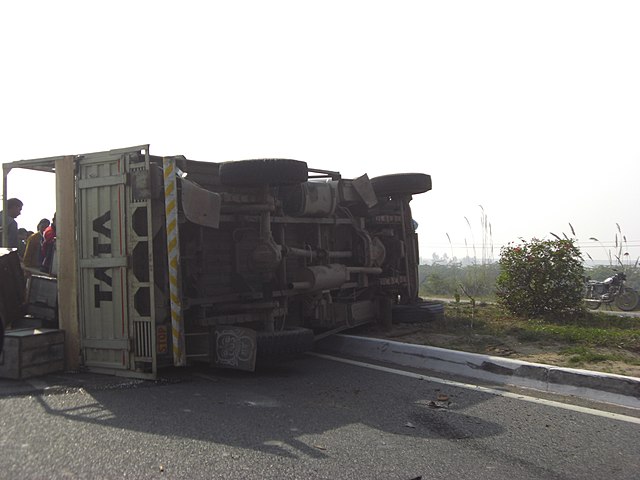When confronted with the harrowing experience of a truck accident, it’s imperative to have a clear understanding of the steps needed to navigate the aftermath effectively. This guide serves as a comprehensive resource, providing essential advice for those affected by such an unfortunate incident.
Initial Response to a Truck Accident
The immediate aftermath of a truck collision is a critical period. Ensuring personal safety and the safety of others is paramount. If possible, move to a safe area and activate hazard lights to signal distress to other motorists. Assessing for injuries and seeking medical help promptly is essential, even if injuries are not immediately apparent.
Reporting the Incident
Once safety is secured, contacting emergency services is crucial. When you call 911, provide them with specific details about the incident, including the location, the number of people involved, and the nature of any injuries.
It’s important to wait at the scene until law enforcement arrives, especially on highways where they play a key role in managing the situation.
Documenting the Scene
Documenting the accident scene is a vital step. Capture photographs of the damage to all vehicles involved, noting license plates.
Also, if there are any witnesses, collect their contact details. Recording environmental conditions and the precise time and date of the incident can also be helpful in later stages.
Exchange of Information
Exchanging contact and insurance details with other drivers involved in the incident is another critical step. Gather as much information as possible, including names, phone numbers, email addresses, and insurance details. This information is indispensable for insurance claims and potential legal proceedings.
Seeking Medical Attention
Even in the absence of visible injuries, seeking a medical evaluation is a must following a truck accident. Some injuries may not manifest immediately, and getting checked by a healthcare professional can prevent complications.
Documenting your visit and any medical advice received is also crucial, as it may play a significant role in any subsequent legal action.
Medical Help and Record-Keeping
In the event of severe injuries, contacting emergency services or visiting the nearest emergency room is necessary. For less severe injuries, visiting an urgent care facility or consulting with a primary care physician is recommended. Keep a thorough record of all medical consultations, treatments, and expenses, as they are critical for any compensation claims.
Navigating Insurance Procedures
Dealing with insurance companies post-accident can be challenging. Reporting the accident to your insurance provider promptly is essential. Most policies have specific deadlines for reporting accidents. When reporting, provide detailed information about the accident, including a description of events, the location, and time.
Handling Insurance Adjusters
Post-reporting, an insurance adjuster will likely contact you to assess the damages. Remember that adjusters represent the insurance company’s interests. Therefore, communicate carefully, sticking to the facts without speculation. Providing them with all relevant documentation, including police reports and medical bills, is crucial.
The Role of a Truck Accident Attorney
Consulting with an experienced truck accident attorney is highly advisable. Fatalities and severe injuries are not uncommon in truck accidents, and legal expertise can be crucial in navigating these complex situations. Most truck accident attorneys offer free consultations, providing insights into your legal rights and options.
Follow-up Medical Care
Adhering to all medical advice and recommendations is vital for recovery. This may include ongoing treatments like physical therapy or chiropractic care. Following these recommendations not only aids in recovery but also strengthens any claims for compensation.
Conclusion
Navigating the aftermath of a truck accident requires a thorough understanding and careful execution of several critical steps. The journey begins with ensuring immediate safety, a fundamental aspect that cannot be overstated. This involves assessing and addressing any injuries, moving to a safe location, and ensuring that all involved parties are out of harm’s way. Once safety is secured, the focus shifts to documenting the incident meticulously. This includes taking photographs of the scene, collecting witness statements, and gathering all relevant information that could prove crucial during insurance claims or legal proceedings.
Subsequently, medical attention becomes a top priority. Seeking a professional medical evaluation is essential, regardless of the initial assessment of injuries. This step is not only crucial for health reasons but also plays a significant role in any legal actions that may follow. Detailed medical records serve as vital evidence in establishing the extent and impact of the injuries sustained.
Legal counsel is the next critical step. Engaging with a skilled truck accident attorney can significantly influence the outcome of any claims or litigation that ensue. These legal experts provide invaluable guidance, from navigating the intricacies of insurance claims to representing victims in court if necessary.
Adherence to these guidelines ensures that the rights of those affected are robustly protected. It sets a foundation for a more structured and effective recovery process, both physically and legally.
With the right approach, coupled with professional support and guidance, individuals impacted by a truck accident can move towards a more hopeful and secure future. Achieving closure and moving forward becomes more feasible, helping them to regain a sense of normalcy after such a distressing event.











